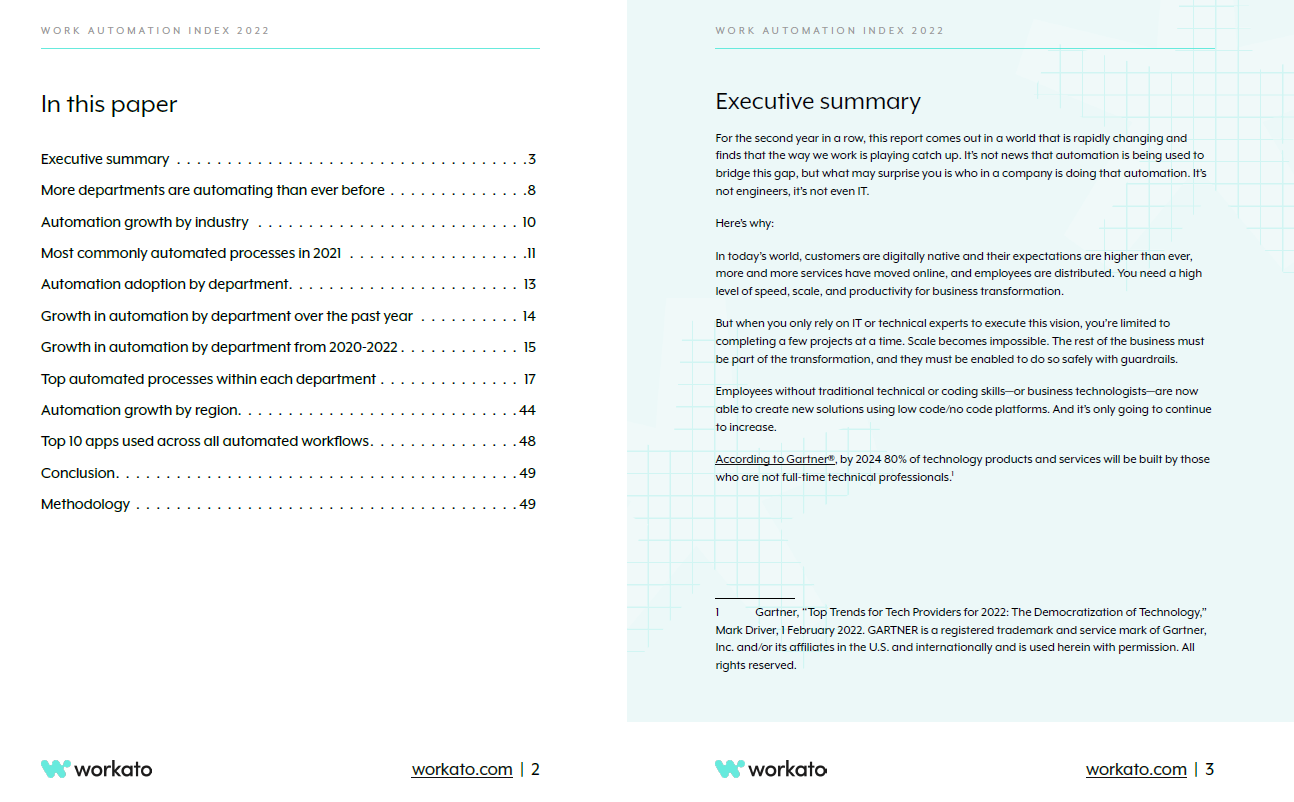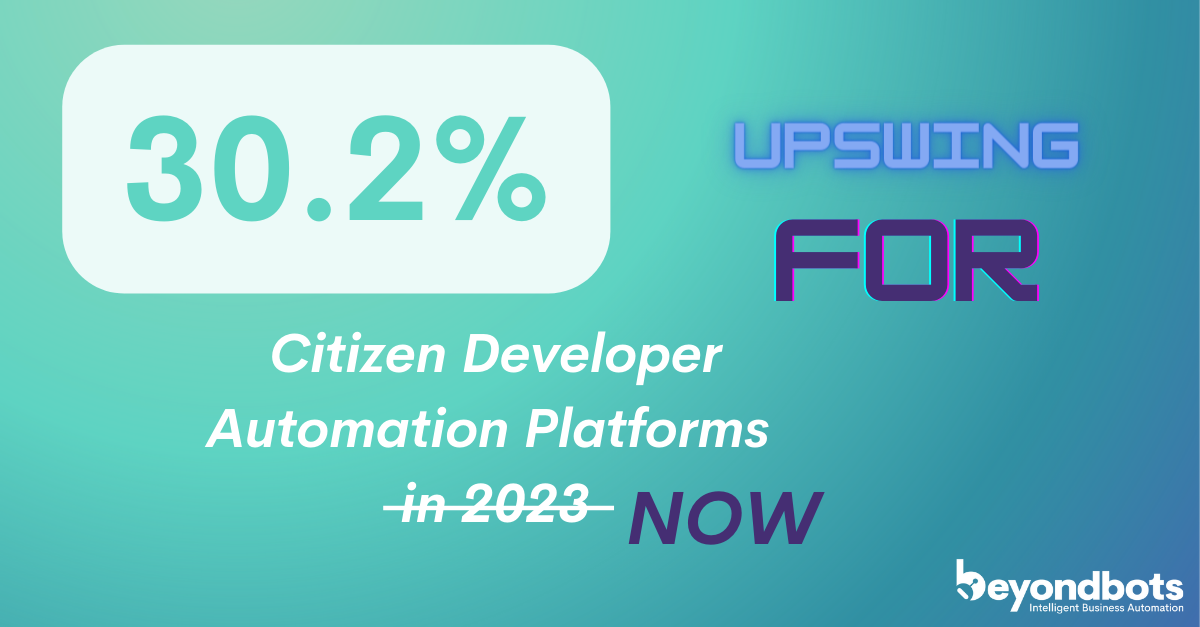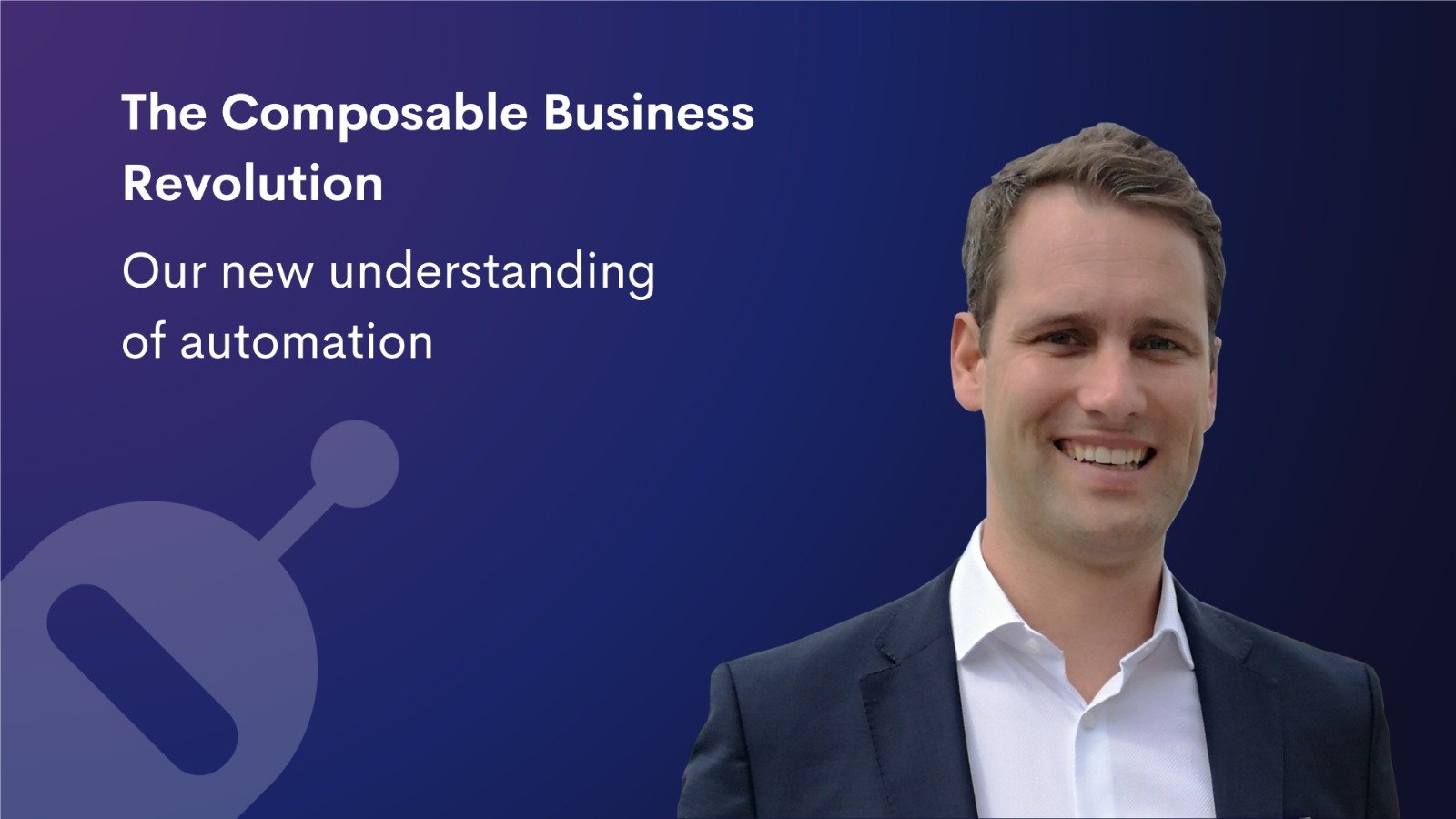Sales and Production Forecast with Predictive AI
.png)
Baseline
Every manufacturing company faces the same challenges: Planning sales forecasts and the production planning derived from them is time-consuming, error-prone and often outdated by the time it is released. Manual planning does not increase the accuracy, but rather reduces the quality of the forecasts, as the necessary resources cannot devote enough time in parallel to their day-to-day business. This leads to inefficient processes and potential bottlenecks in production. In order to remain competitive, it is therefore essential to find new approaches
A new approach
Predictive AI can highly automate planning processes by analyzing company data and macroeconomic parameters to predict future sales, inventory, and production quantities. This minimizes manual planning steps by incorporating factors such as company-specific customer sentiments or seasonal fluctuations. The results are often outstanding. Depending on the degree of process simplification and optimization, planning efforts can be reduced by up to 90%.
The following graphic shows a simplified illustration of a dashboard that shows the results of predictive AI. This considers the three factors (for more details see graphic 2) and calculates the forecast based on these.
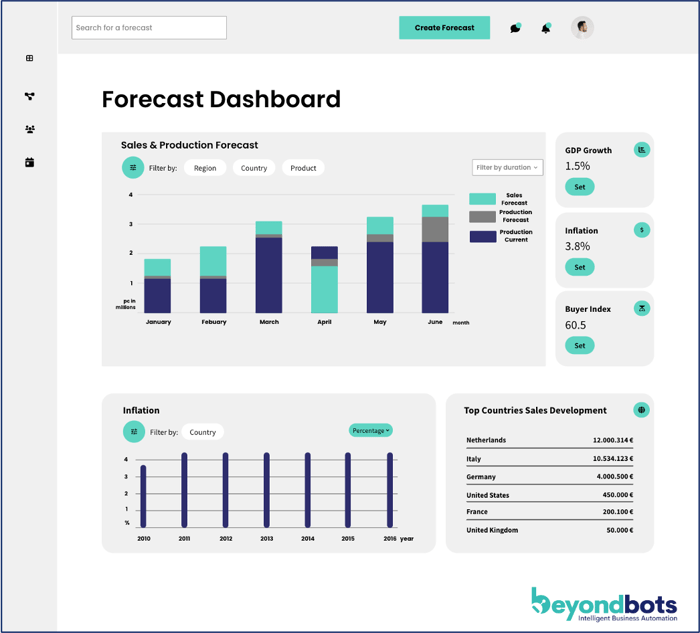
The required planning parameters can be divided into three categories: Planning dimensions such as the product group, economic macro factors such as GDP and company-specific, individual factors such as closing days.
By using predictive AI and taking these different factors into account, the accuracy of sales and production planning is significantly improved and simplified. This enables companies to utilise their resources more efficiently, reacting quicker to changes in the market, avoid bottlenecks in production and thus increase their competitiveness.
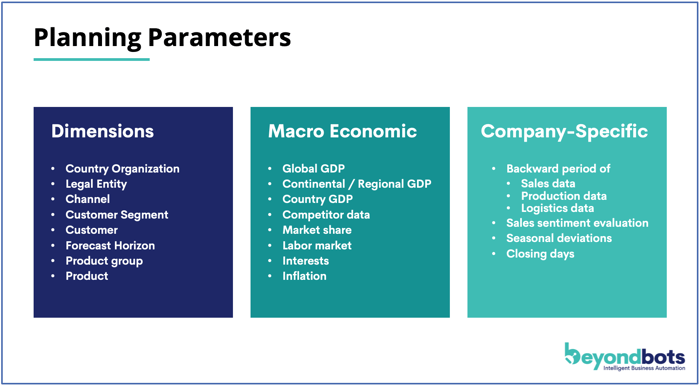
The combination of a simplified planning process and AI enables a transformation for all areas involved in planning, such as sales, purchasing and production. However, technology alone may not be able to solve process-related challenges. However, if processes in automation projects are simultaneously optimised with an "automation first mindset" and the principle of simplification, the benefits of AI are exponential and have a noticeable business impact.
Author: Jule Witt

